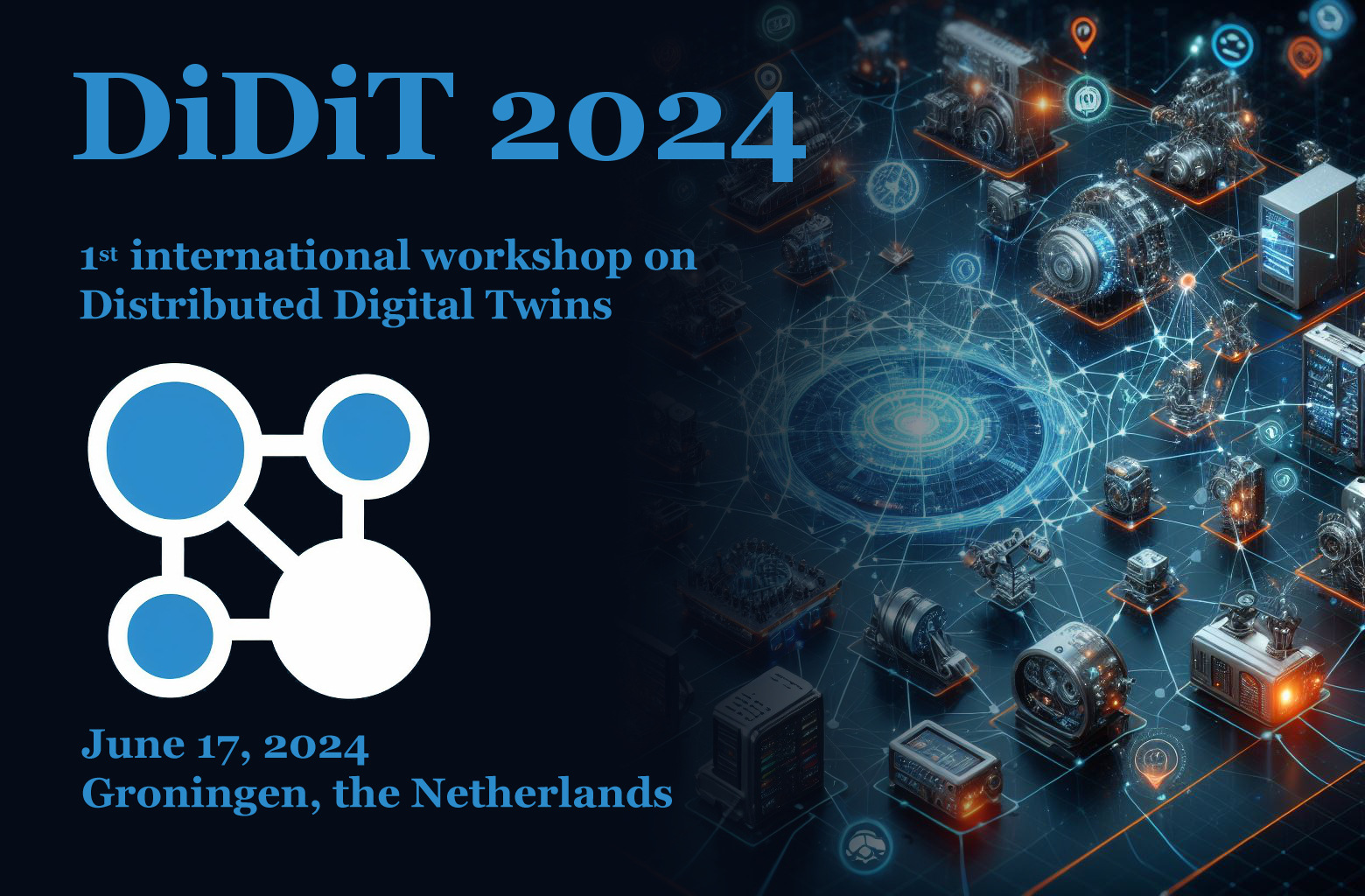
The 19th International Conference on Distributed Computing Techniques (DisCoTec) is currently underway, taking place from June 17-21, 2024, at the University of Groningen. A highlight of the conference was the workshop on Distributed Digital Twins, which featured a panel discussion on "Distributed Digital Twins: Engineering Challenges and Future Trends".
The panel brought together experts in the field, including BioDT project partners Tomas Martinovic and Dirk Pleiter. Their participation underscored the critical issues and groundbreaking work being conducted under the BioDT project. The panel was moderated by Elena Lazovik from TNO, who guided the discussion to explore the latest advancements and persistent challenges in the realm of digital twins.
Understanding Digital Twins
A digital twin (DT) is an advanced virtual representation of a physical object, system, or process, which can range from individual devices to entire cities or ecosystems. By leveraging Internet of Things (IoT) technologies, such as sensors and actuators, DTs synchronise with their real-world counterparts. This synchronisation allows for the application of digital technologies like artificial intelligence (AI), data analytics, and computer simulations to experiment, simulate, analyse, adapt, and optimise the behaviour, performance, and maintenance of the physical entity, including its interactions with other systems.
However, the real-time representation and management of complex, distributed, and interconnected elements in large industrial systems pose significant scientific and industrial challenges. These challenges formed the core of the discussions at the DisCoTec workshop.
BioDT is developing prototype digital twins to revolutionise our understanding of biodiversity. Launched in May, the first operational BioDT prototype exemplifies this approach. These digital twins mimic real-world behaviors observed in nature, allowing us to analyse how biodiversity reacts to various human pressures, including climate change. BioDT plans to create a diverse range of digital twins tailored to specific BioDT Use Cases, catering to multifaceted research needs. By fostering interoperability, these twins can be seamlessly linked with those developed by other digital twin initiatives. This collaborative approach aligns perfectly with the European Commission's vision of creating a comprehensive digital twin of the Earth, ultimately maximising the usability and impact of BioDT's research.
Panel Highlights
During the panel, Tomas Martinovic and Dirk Pleiter highlighted the innovative approaches and solutions being developed within the BioDT project. They discussed the project's efforts to address the complexities of distributed digital twins, particularly in large-scale cyber-physical systems. Their insights provided valuable perspectives on the integration of various digital technologies to enhance the performance and reliability of these systems.
Moderator Elena Lazovik facilitated a dynamic conversation, encouraging panelists to delve into the future trends and potential breakthroughs in the field. The discussion emphasised the importance of collaboration between academia and industry in overcoming the current challenges and advancing the state of distributed digital twins.
About DisCoTec 2024
DisCoTec is one of the major events sponsored by the International Federation for Information Processing (IFIP) and the European Association for Programming Languages and Systems (EAPLS). The 2024 edition of the conference, hosted by the University of Groningen, brings together researchers, practitioners, and industry leaders to discuss and disseminate the latest developments in distributed computing techniques.
The workshop on Distributed Digital Twins at DisCoTec 2024 provided an essential platform for exploring the critical issues facing this emerging technology. The participation of BioDT project partners presents an opportunity to showcase the project's outcomes and connect with other initiatives and experts across Europe to foster synergies and make significant contributions to the field.
As the conference continues, attendees look forward to more insightful discussions and the opportunity to engage with the forefront of distributed computing research and practice.